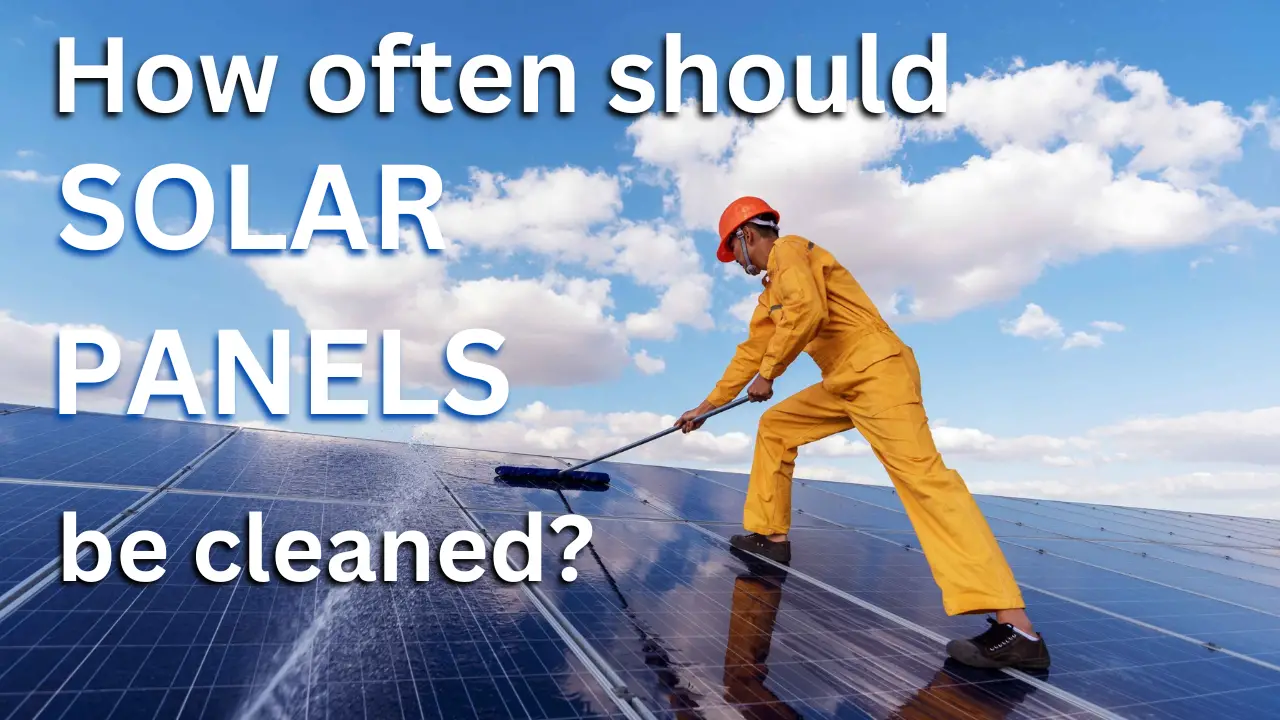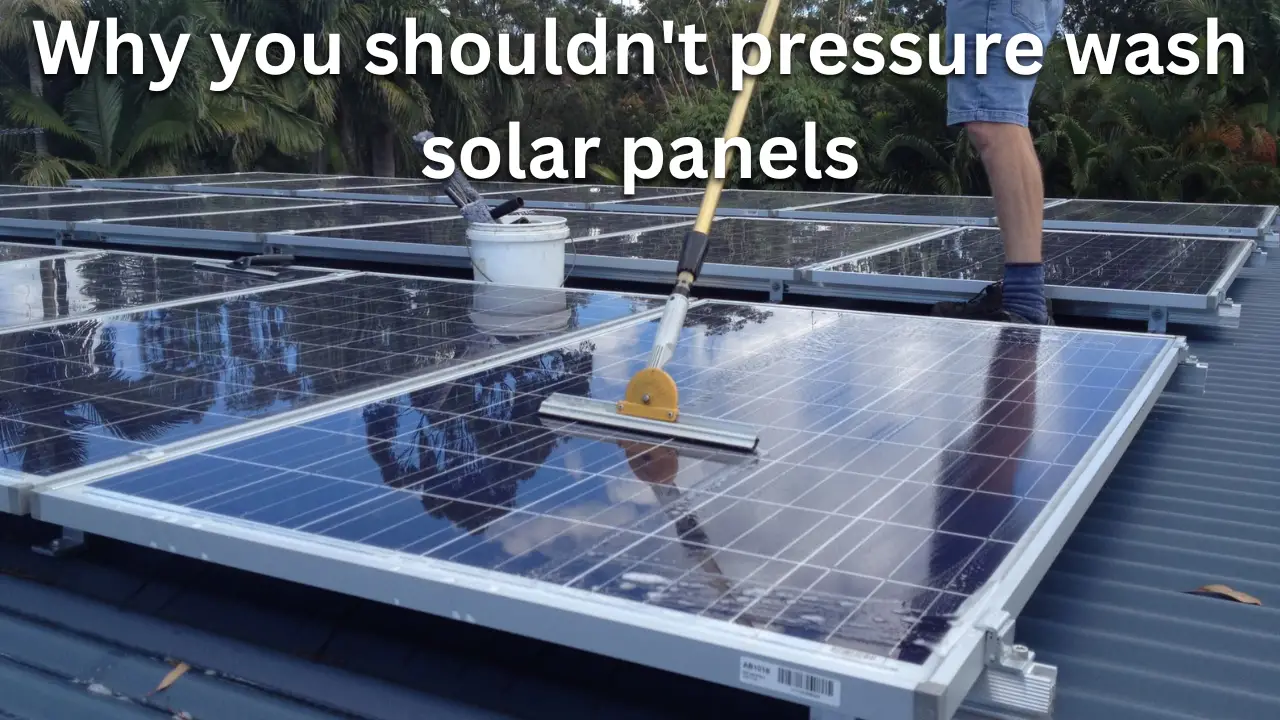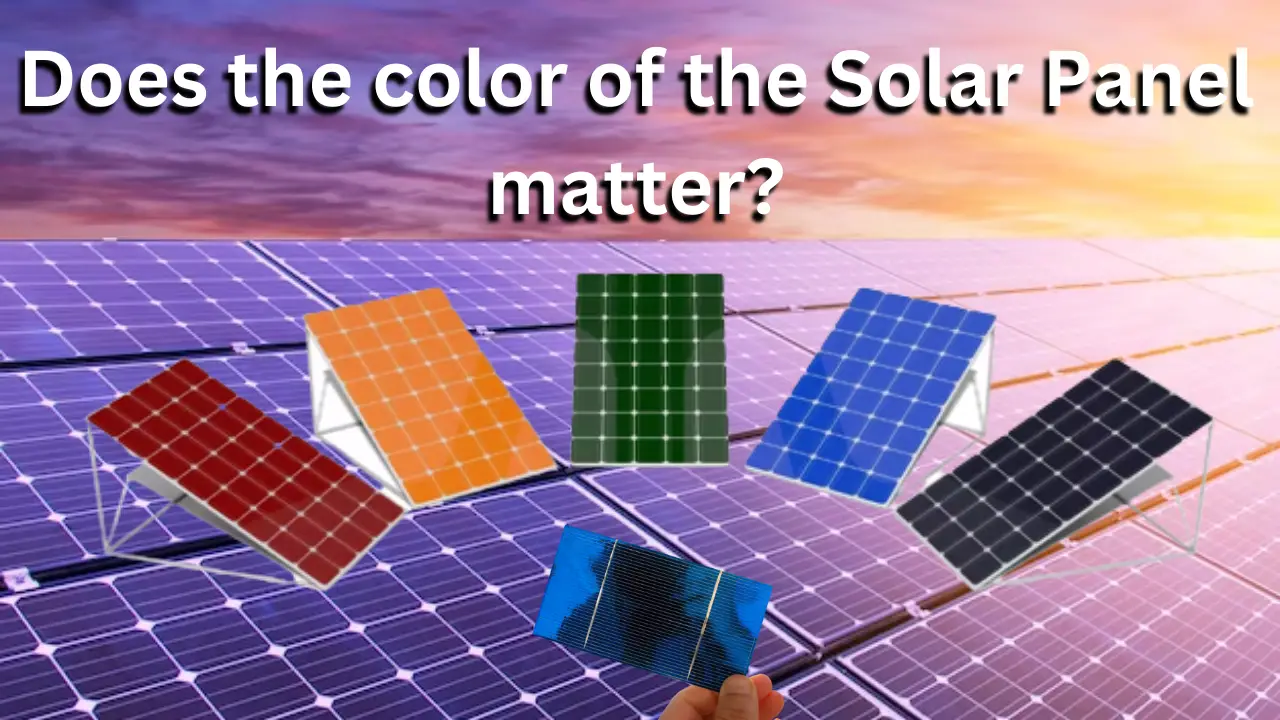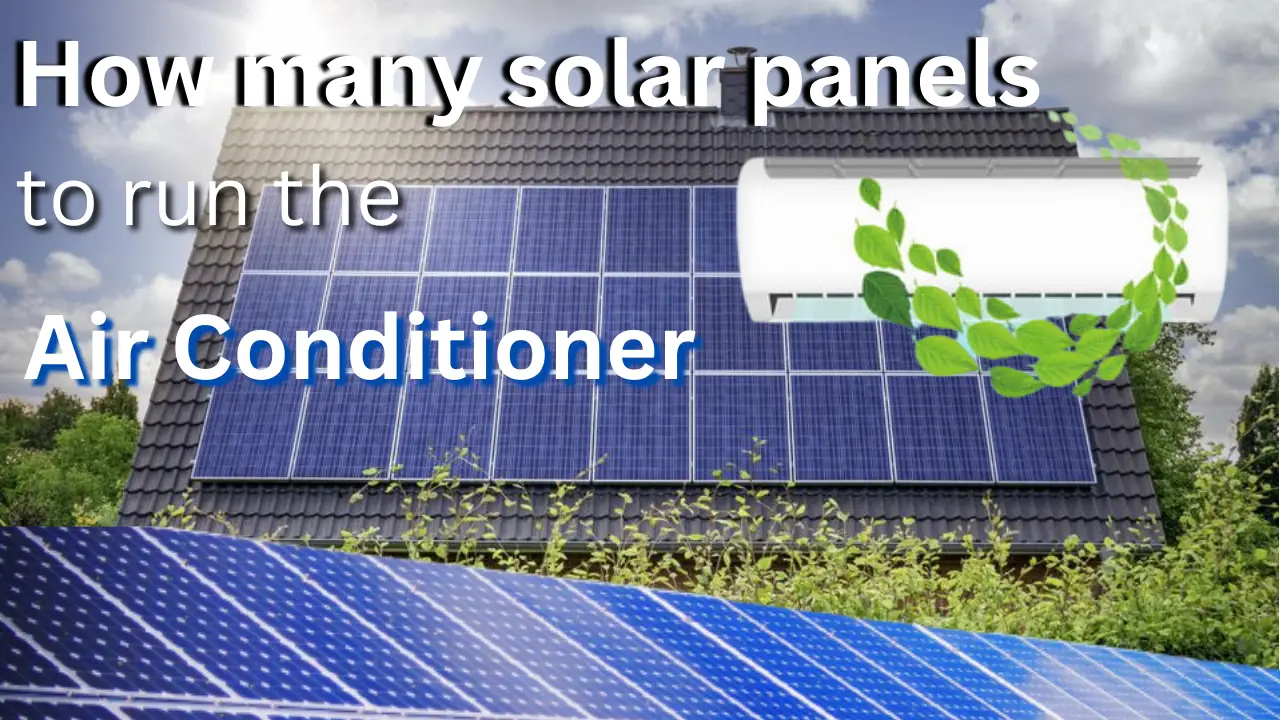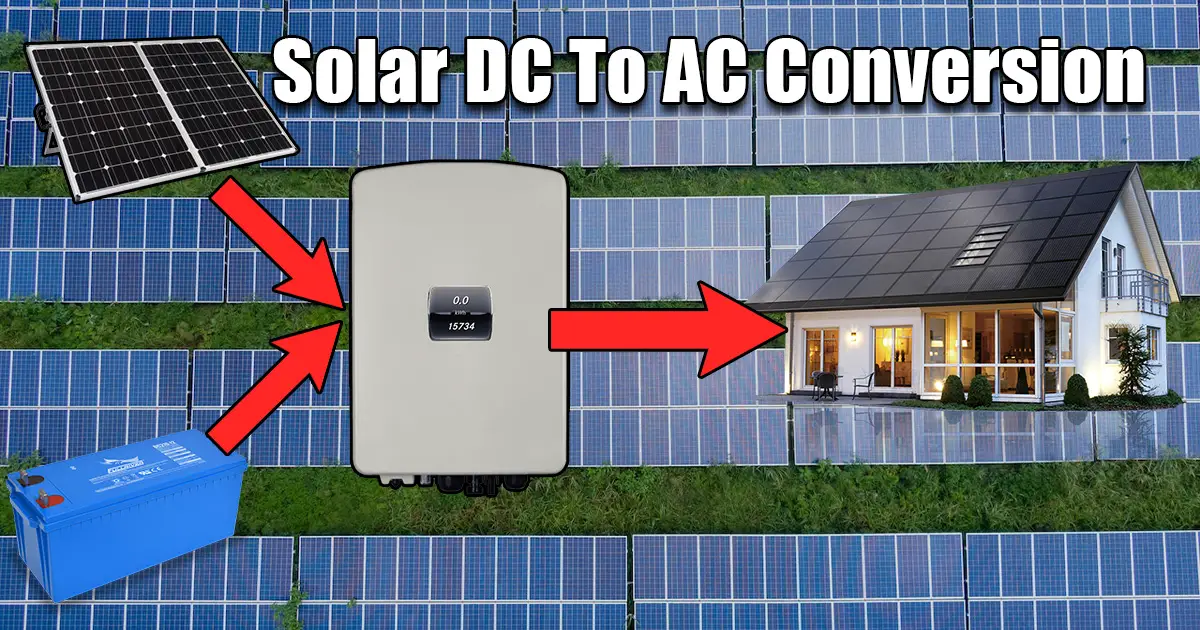Solar panels are a great way to produce clean and renewable energy. They work by converting sunlight into electricity, which can power your home or business. However, over time, solar panels can become dirty and dusty, which can reduce their efficiency and output.
This is why it is crucial to keep your solar panels clean. But how often should you clean them? In this article, we will explore the answer to this question in detail.
Solar panels should be cleaned at least once every six months; this frequency depends on factors like location, climate, orientation, usage, and type of solar panel. Solar panels must also be cleaned regularly to preserve their efficiency and output by eliminating dirt, dust, and debris accumulating on their surface over time.
Why do solar panels need cleaning?
Solar panels need cleaning to maintain their efficiency and ensure maximum energy output. As solar panels generate electricity by converting sunlight into energy, any buildup of dirt, debris, or other substances can block the sunlight and decrease the panel’s efficiency.
Here are three reasons why solar panels need cleaning:
Dirt and debris: Solar panels can accumulate various types of dirt and debris, such as dust, bird droppings, tree sap, and other organic matter, which can obstruct sunlight from reaching the photovoltaic cells. This accumulation can decrease the amount of energy generated, reducing the overall performance and output of the solar panel system.
Efficiency and output: Keeping solar panels clean and free from debris is vital to ensure that they are operating at their maximum efficiency and producing as much energy as possible. Regular cleaning can help maintain optimal performance, prevent potential damage or degradation, and extend the panels’ lifespan.
Maintenance: Regular cleaning of solar panels is essential to their maintenance. By keeping them clean and free from debris, it is possible to identify any potential issues, such as cracks, scratches, or other damages, that can impact their performance. This can help to prevent potential damage or costly repairs in the future.
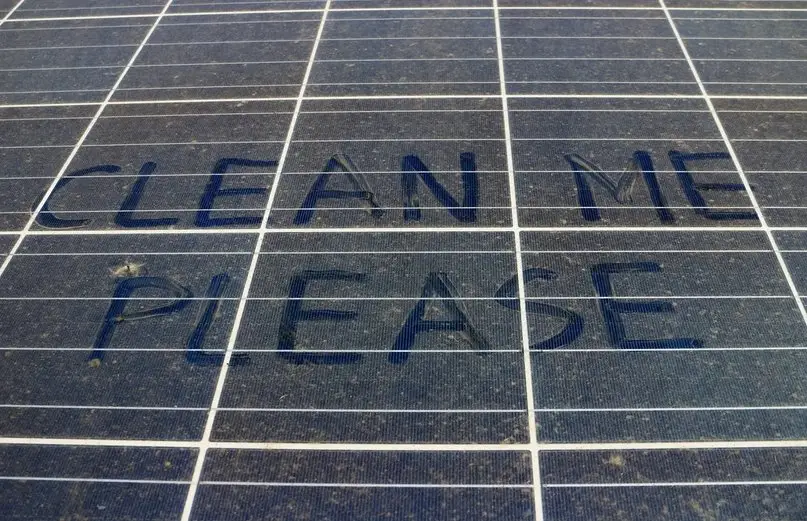
Solar Panels And Energy Loss Over Time
You can easily notice that your energy loss increases from 0% to 20% at the end of the first year without cleaning. This loss increases from 20% to 35% in the second year. Inefficiency and energy loss can increase if cleanings are delayed for longer than two years.
Your panels can run like new if you get regular cleanings. Receiving skilled maintenance could extend the lifespan of your solar energy equipment.
How often should my solar panels be cleaned?
The frequency at which solar panels must be cleaned depends on several factors. Some of the factors that affect the cleaning frequency include:
#1 Location
The location of the solar panels plays a significant role in determining how often they need to be cleaned. Solar panels in areas with high pollution levels, dust, or dirt will need to be cleaned more frequently than those with clean air and minimal dust.
#2 Climate
The climate of the region where the solar panels are installed can also affect their cleaning frequency. For example, solar panels in areas with high levels of rainfall may not need to be cleaned as often as in areas with low rainfall.
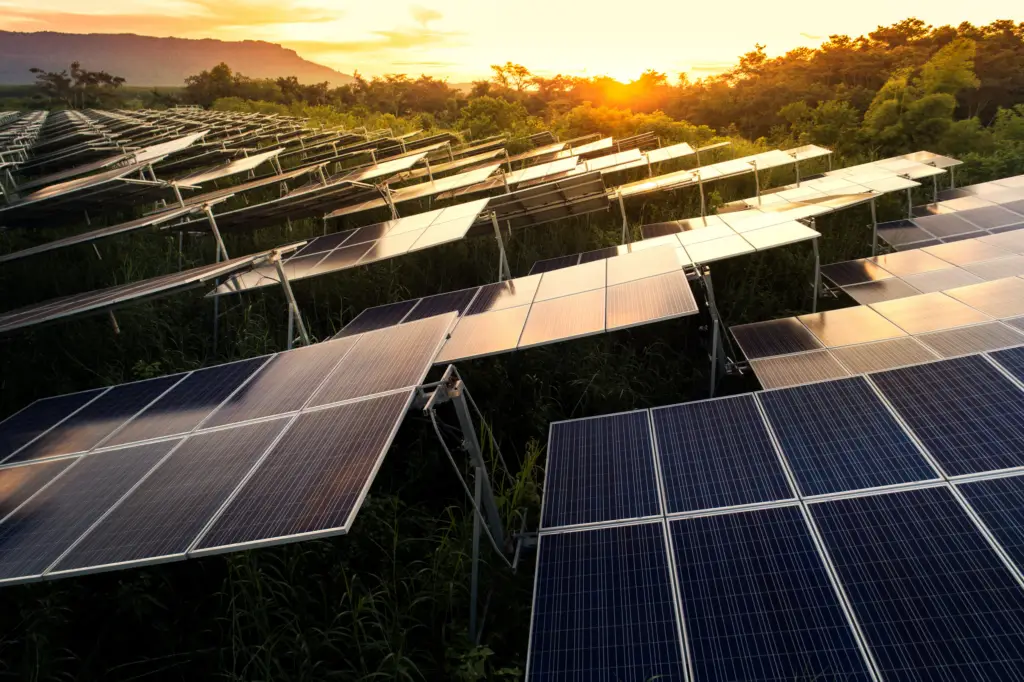
#3 Orientation
The orientation of the solar panels can also affect their cleaning frequency. Panels installed at a steep angle may not accumulate as much dirt and dust as those installed at a slight angle.
#4 Usage
The amount of energy that solar panels produce also affects their cleaning frequency. Panels that are used frequently will accumulate more dirt and dust and may require more frequent cleaning.
#5 Type of solar panel
The type of solar panel also plays a role in determining the cleaning frequency. Some solar panels are self-cleaning, while others require regular cleaning to maintain their efficiency.
Generally, solar panels should be cleaned at least twice a year. However, it’s best to check the panels regularly and clean them as necessary. Monitoring the panels’ efficiency is essential, as a decrease in output could be a sign that they need cleaning.
Cleaning Frequency Recommendations
Based on the above factors, the recommended cleaning frequency for solar panels can vary from once a month to once a year. However, the most commonly recommended cleaning frequency is once every six months.
It is important to note that this is a general recommendation and may not be suitable for all situations. Therefore, it is advisable to consult a professional to determine the appropriate cleaning frequency for your solar panels.
The Rain Isn’t Always Enough To Wash Away Dirt
Even though the natural rain will undoubtedly aid and play a role in washing away the dirt and dust, it isn’t always sufficient. After a storm, your panel’s surface can look clean, but rainwater might leave behind residue that isn’t immediately apparent on your panels.
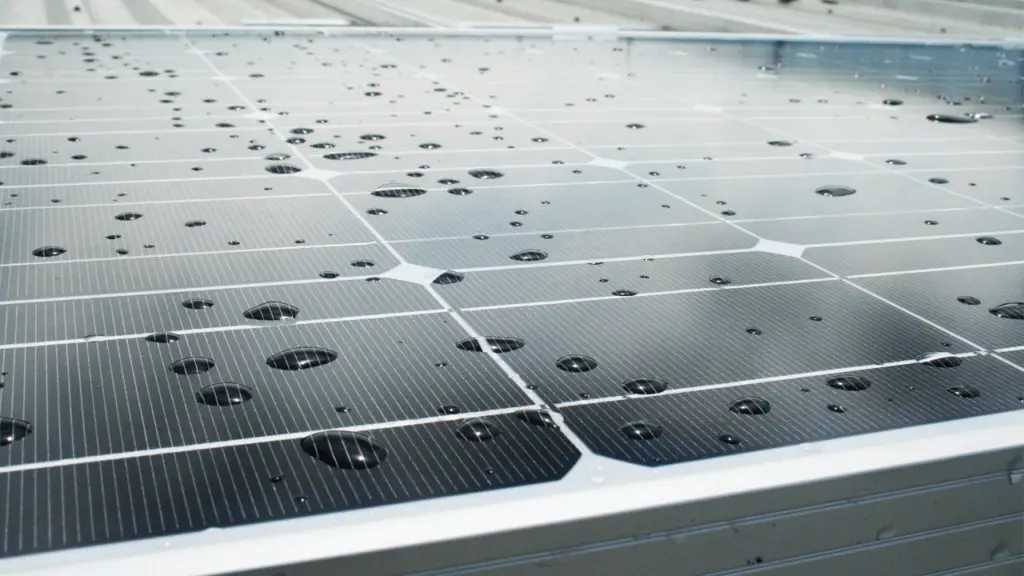
This is because rainfall frequently contains other particles as well as a tiny amount of soil. The effectiveness of your panels might be significantly decreased if you allow a thin coating of film to accumulate over an extended period of time.
Washing panels even once a year can improve efficiency
Solar panel experts recommend thoroughly cleaning panels at least once a year, as it can improve energy output by up to 12% compared to only relying on rainfall cleaning. However, cleaning them twice a year is even better. The National Renewable Energy Laboratory discovered that dirty solar panels could lose up to 25% of their efficiency, highlighting the importance of regular cleaning to maintain maximum energy production.
Regular cleaning can help prevent this loss of efficiency and ensure that your panels produce the maximum amount of energy possible. Even if you live in an area with less dirt and debris, cleaning your panels annually is still a good idea to maintain their performance.
Solar Panel Cleaning Methods
Several methods can be used to clean solar panels. The most suitable method depends on the type of solar panel, the location, and the level of dirt or dust accumulation. Some of the common cleaning methods include:
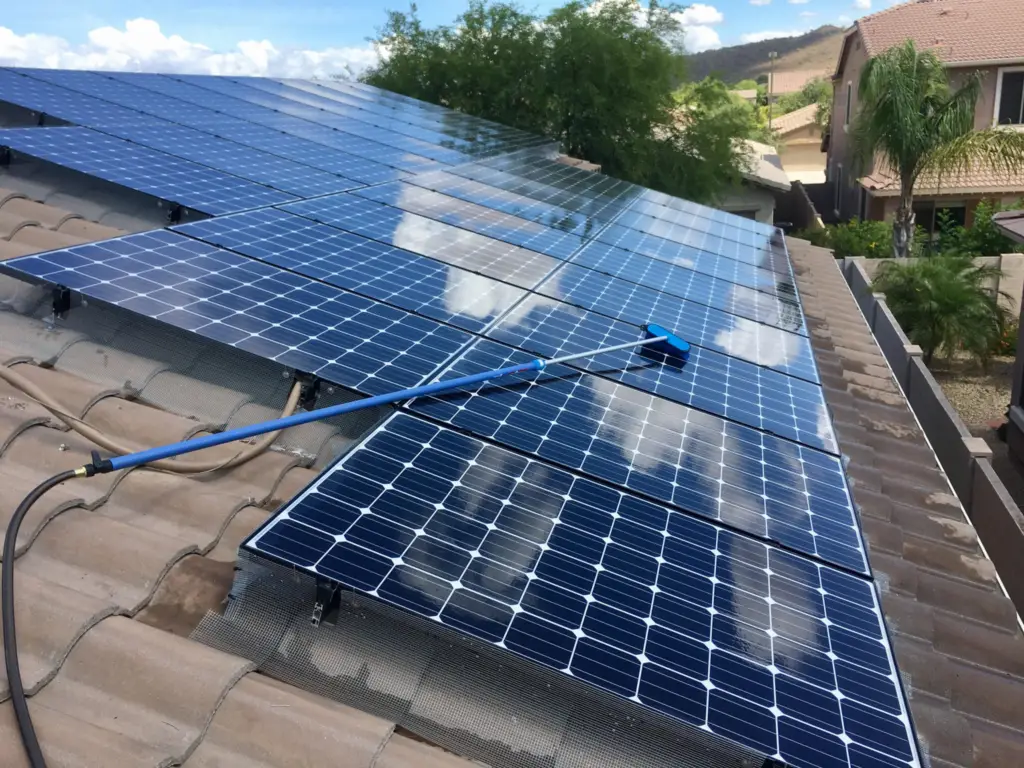
Water and a soft brush
These are one of the most commonly used cleaning methods for solar panels. It involves using a soft brush and water to remove any dirt or dust accumulated on the panels’ surface. This method is suitable for panels that are not too dirty and can be easily reached.
Hosepipe
A hosepipe can also be used to clean solar panels. This method involves spraying water onto the panels to remove dirt or dust. It is suitable for panels that are not too dirty and can be easily reached.
Automated cleaning systems
Automated cleaning systems use robots or machines to clean solar panels. These systems are suitable for large solar panel installations where cleaning manually would be time-consuming and expensive.
Chemical cleaning
Chemical cleaning involves using chemicals to remove dirt and dust from the surface of solar panels. This method is suitable for heavily soiled panels and cannot be easily cleaned with water and a soft brush.
Ultrasonic cleaning
Ultrasonic cleaning involves using high-frequency sound waves to remove dirt and dust from the surface of the solar panels. This method is suitable for heavily soiled panels and cannot be easily cleaned with water and a soft brush.
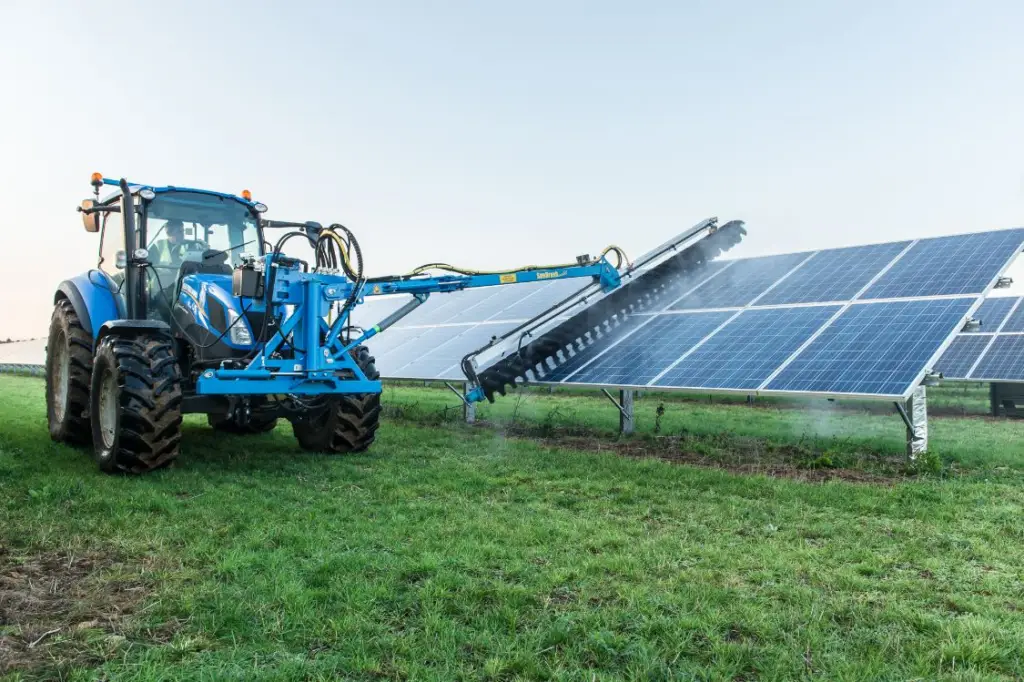
FAQ
How do I know if my solar panels need cleaning?
You can check for decreased energy output or visually inspect the solar panels for dirt, dust, or debris accumulation. It is best to consult a professional for a thorough inspection and cleaning recommendation.
What are the risks of cleaning solar panels on my own?
Cleaning solar panels on your own can be risky, especially if you are dealing with hard-to-reach spots. It is important to follow safety protocols to avoid falls or accidents. Consult with a professional before attempting to clean solar panels on your own.
Can I use a pressure washer to clean my solar panels?
Using a pressure washer to clean solar panels is not recommended, as it can damage the panels or disrupt the wiring. High-pressure water can also force water under the panels, causing moisture buildup and potential damage to the roof or insulation. It is best to consult with a professional for the appropriate cleaning method for your solar panels. To understand this better, read our post here.
Conclusion
Regular cleaning is crucial to maintaining the efficiency and lifespan of your solar panels. While the frequency of cleaning depends on several factors, it’s essential to check the panels regularly and clean them as necessary. Even cleaning the panels once a year can significantly improve their efficiency and prevent damage.
You can ensure that your solar panels produce the maximum amount of electricity by keeping them clean, which can help you save money on your energy bills and lessen your carbon impact.

